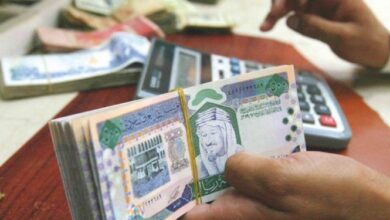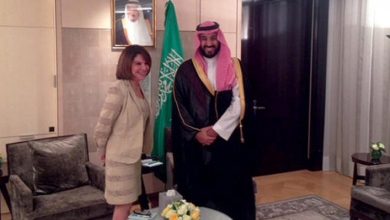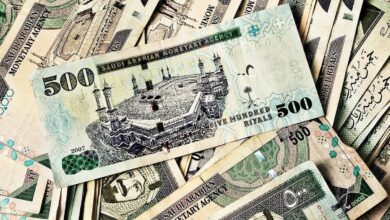
Reports on a lawsuit against a Saudi prince published in the British media highlighted the financial pressure on members of the royal family in Saudi Arabia in light of the persecution Saudi Crown Prince Mohammed bin Salman subjected them.
According to the European Microscope on Middle East Issues, the case was filed in London against Prince Khalid bin Sultan bin Abdulaziz Al Saud, the eldest son of Prince Sultan bin Abdulaziz Al Saud, who previously held the position of deputy defence minister until he was dismissed on April 20, 2013.
In a post translated by the European Microscope, the Financial Times reported that Prince Khaled is being prosecuted in London.
An Irish company, Yuntian 10, affiliated with China’s Minsheng Bank, claims at least £30m of unpaid bills and interest on a business jet chartered by Bermuda-based Dream Aircraft in 2017 under a personal guarantee from the Saudi prince.
According to the newspaper, the lender is demanding the execution of the ruling on a luxury residence (The Holme) in London’s Regent’s Park that is on the market for 250 million pounds sterling, claiming that Prince Khaled is among the real owners and beneficiaries of it, due to the bills incurred on the private Boeing 787.
And the newspaper reported that the property’s asking price, which amounted to 250 million pounds, would make it the most expensive home sold in London if the deal is secured.
It pointed out that the dispute surrounding the house highlights the dealings of wealthy foreign investors with high-end real estate in London and the financial pressure on members of the royal family in Saudi Arabia.
According to the Financial Times, the lawsuit dates back to 2020, after Dream Aircraft stopped making lease payments.
The financial affairs of members of the Saudi royal family have come under pressure from Mohammed bin Salman. According to the newspaper, Prince Khaled’s financial circumstances changed dramatically after Riyadh launched what it described as an anti-corruption campaign in 2017. About 300 princes, businessmen and others were arrested as part of the campaign.
The newspaper said court records show the lender secured a judgment against Dream Aircraft and the prince, which was valued at more than £30m in July 2022.
And in what may be the most expensive real estate deal in London ever, the luxurious Regent’s Park mansion, located on an area of four acres, was put up for sale after the expiration of a considerable loan that its owner, the Saudi prince, guaranteed, expired, which led to the seizure of the bank after the loan payments were not made in its times, according to the British Financial Times.
And the palace, which the agents expect to sell at a price of up to 250 million pounds sterling, the newspaper stated, that its previous owner, according to property records, is Prince Abdullah bin Khalid bin Sultan, a member of the Saudi royal family and the Kingdom’s representative to the United Nations in Vienna, along with a number of other members of his family.
The palace fell into the hands of the bank after the Saudi prince obtained a £150 million loan, which was secured by the guarantee of the property and other assets, including a house and a plane in New York. Still, the payments were not made on time, and the grace period expired.
And suppose the palace is sold for £250 million. In that case, it will exceed the price of the most expensive house in London, a £210 million mansion overlooking Hyde Park, owned by Evergrande founder Hui Kai’an, who was previously ranked the wealthiest man in China, according to the Financial Times.
The newspaper pointed out that the unusual circumstances of the sale of this palace shed light on a rare aspect of the dealings of wealthy foreign investors in London real estate because such transactions are often shrouded in secrecy.
London’s luxury home market has been increasingly dominated by foreign buyers in recent decades, with Britain favoured because of its strong property laws and the ability to buy anonymously, leaving almost no trace of ultimate ownership.
The UK government has recently sought to shed light on opaque ownership structures, pressuring outside organizations to declare their beneficial ownership status or face fines.





